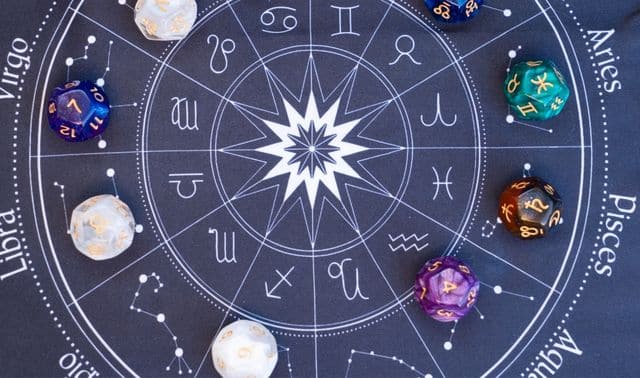Astrology is a form of divination that includes observing and interpreting the permanent stars, the Sun, the Moon, and the planets to predict earthly and human affairs. Devotees think that knowing how the solar systems affect earthly events permits them to foretell and alter the fates of people, organizations, and countries.
Despite being recognized as a science throughout its origins, astrology is often viewed today as being fundamentally opposed to current Western science’s discoveries and beliefs.
What is Vedic astrology?
The mythology surrounding zodiac signs, and planets are abundant in Vedic astrology.
Vedic Astrology is an old Hindu discipline that describes astronomical movements and locations in relation to time, as well as how they affect people and other living things on the land. The origins of astrology readings can be traced back a long time. Ancient astrology used to be solely focused on the movement of planets in relation to stars, but as time went on, it began to include astrological signs as well.
There are 27 constellations in Vedic astrology, each of which is made up of 12 zodiac signs, 9 stars, and 12 houses, each of which represents a different element of human existence. The 12 signs are dispersed among the 12 houses, and 9 planets are put in different houses, reflecting on when a person is born.
A horoscope chart is a graphic depiction of a picture of the signs and planets. The significance of these configurations as they apply to people and other creatures is what Vedic astrology is all about.
There are three primary branches of vedic astrology (Jyotisha):
• Siddhanta (Astronomy): Astronomy and its application to astrology are referred to as Siddhanta (Astronomy).
• Samhita (Mundane astrology): Covers Mundane astrology, predicting significant moments related to nations such as war, earthquakes and tsunamis, politics, Astro meteorology, financial situations, electional astrology; mansion and construction-related matters (Vaastu Shaastra); animals, portents & omens, and so on.
• Hora (Predictive astrology)
Difference between Vedic and western astrology?
The technique of Astrology calculation is the most easily referred to as the distinction between the two. The sidereal zodiac is used largely in Vedic astrology, whereas the tropical zodiac is used in most Western astrology. As a result of the movement of the ecliptic, this difference only becomes evident over time, after so many generations.
No matter where you are from, you should know who the finest astrologer and astrology service provider is. And you’ve probably heard of pt. Ankit Sharma, our well-known and best astrologer in India, who can give any astrology solution. Even the most challenging challenges are no match for him. You do not need to be anxious; simply schedule an appointment with pt. Ankit Sharma, a Vedic astrologer. He has a deep understanding of Indian Vedic astrology. His dedication, experience, and competence have won him a position as someone who can be trusted by others. Each person who comes to him gets a fantastic result.

More Stories
Job Opportunities in Luxembourg: A Gateway to International Careers
What Types of Injuries Do Queens No-Fault Doctors Treat Most Often?
Difference Between Workers’ Comp Doctors and Regular Physicians in Rego Park